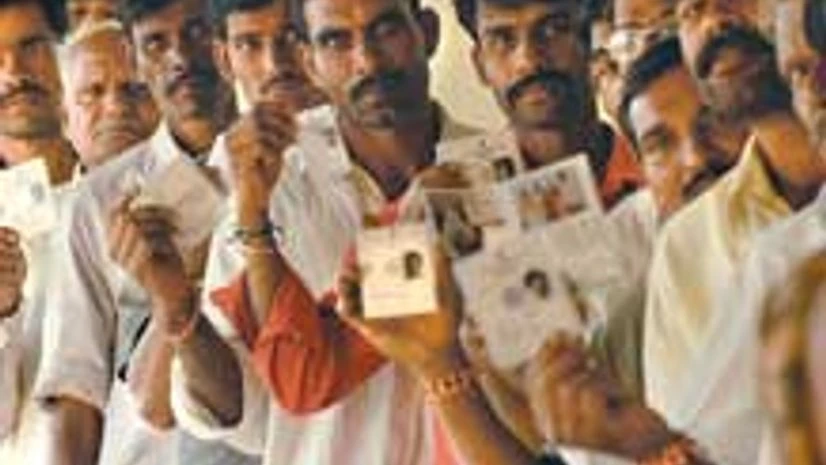Who are likely to be the members of the 16th Lok Sabha that will be constituted after May 16?
Chances are the House will be overwhelmingly male, with many in the age group of 30-50 years. The MPs will be less educated but will own assets worth crores of rupees. Poor states like Bihar and Odisha are more likely to send rich MPs than more prosperous states like Maharashtra, Karnataka and Tamil Nadu. It is fair to assume that the typical MP has not filed his income tax return.
These assumptions are made on the basis of an analysis by the Association for Democratic Reforms (ADR) of 5,380 candidates contesting from 349 constituencies in the first five phases of the 2014 Lok Sabha elections. According to ADR, 55 per cent of the candidates have not provided their income tax details and 30 per cent have refused to divulge their permanent account number.
More From This Section
Incidentally, in the 2009 Lok Sabha elections 62 per cent candidates had not declared their permanent account numbers. "It is a deliberate and arrogant defiance of the rule of law. It is also indicative of the hold of black money in elections," says Jagdeep Chhokar, one of the founders of ADR and former director in-charge of the Indian Institute of Management, Ahmedabad.
The hold of money power in elections is on full display as the average assets of candidates this time is nearly Rs 5 crore. What is surprising is that 38 per cent of all candidates from Uttar Pradesh and 28 per cent each from Bihar and Odisha are crorepatis. Seemingly richer states like Tamil Nadu and Kerala have fewer crorepati candidates in the fray (21 per cent and 18 per cent, respectively). Among political parties, average assets of Congress candidates are nearly four times those of Bharatiya Janata Party (BJP) nominees. In fact, 83 per cent of all Congress candidates and 74 per cent of BJP candidates are crorepatis. The two main Left parties, the Communist Party of India and the Communist Party of India (Marxist), have fielded the least number of crorepati candidates (18 per cent each). The Biju Janata Dal, the Rashtriya Janata Dal and the Dravida Munnetra Kazhagam have given tickets to a significantly higher number of rich candidates.
In the 2009 Lok Sabha elections, the average assets of candidates was Rs 1.11 crore. The Congress then had 63 per cent crorepati candidates and the BJP had 42 per cent crorepati candidates. Chokkar says: "This clearly shows that the influence of money power is going up, which is not a healthy sign. It is going to adversely impact the quality of representation, which may eventually result in a disconnect between Parliament and the people."
What is even more shocking is the gross under-representation of women. Of the 8,070 candidates who contested the 2009 Lok Sabha elections, only 556 (seven per cent) were women. Only 59 women eventually won the elections. The situation is only marginally better this time. Of 5,380 candidates in the fray for the first six phases of the 2014 election, only 402 (eight per cent) are women. Given the gross under-representation of women candidates, it is highly unlikely the number of women MPs in 16th Lok Sabha is going to be significantly higher than in the previous House.
Under-representation of women aside, the new Lok Sabha is going to partially reflect the age profile of the country. As many as 63 per cent of all candidates analysed by ADR are in the age group of 30-50 years. In terms of the educational background of candidates, as many as 48 per cent have studied till Class 12 and an equal number are graduates and above.
What may also disappoint democracy watchers is that the criminalisation of politics has refused to come down. In the 2009 Lok Sabha elections, 15 per cent of all candidates had criminal cases pending against them.
This time, parties have fielded 16 per cent candidates with criminal records. "The great hope was that the rise of the Aam Aadmi Party and the disquiet over corruption would influence candidate selection. Here the evidence suggests such optimism was unwarranted. Criminality persists, not because voters remain unaware of candidates' backgrounds but because many voters perceive having a 'strongman' as a representative can be useful," observes Milan Vaishnav, an associate with the South Asia programme at the Carnegie Endowment for International Peace.

)
